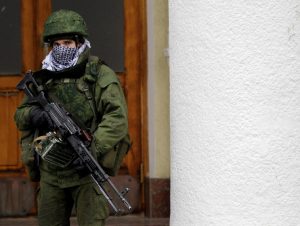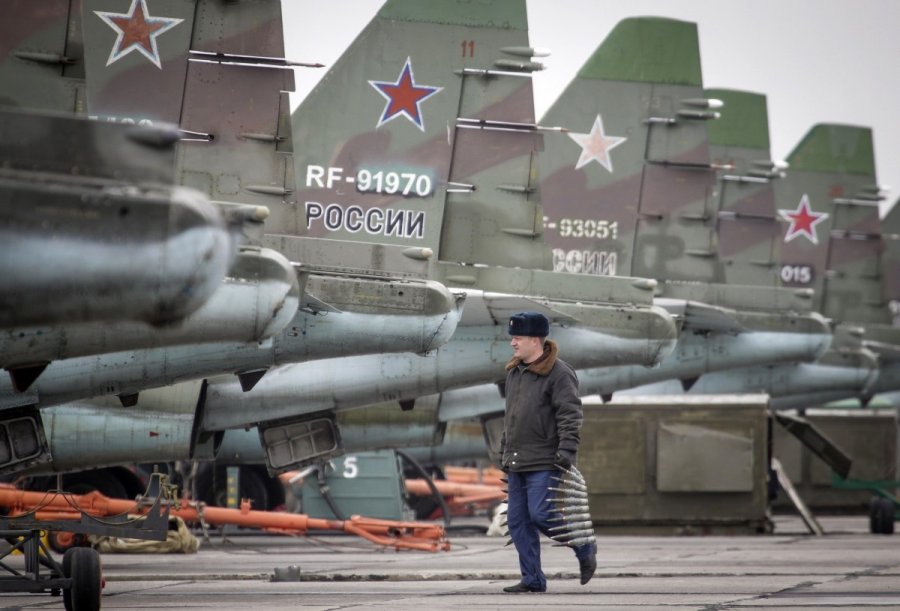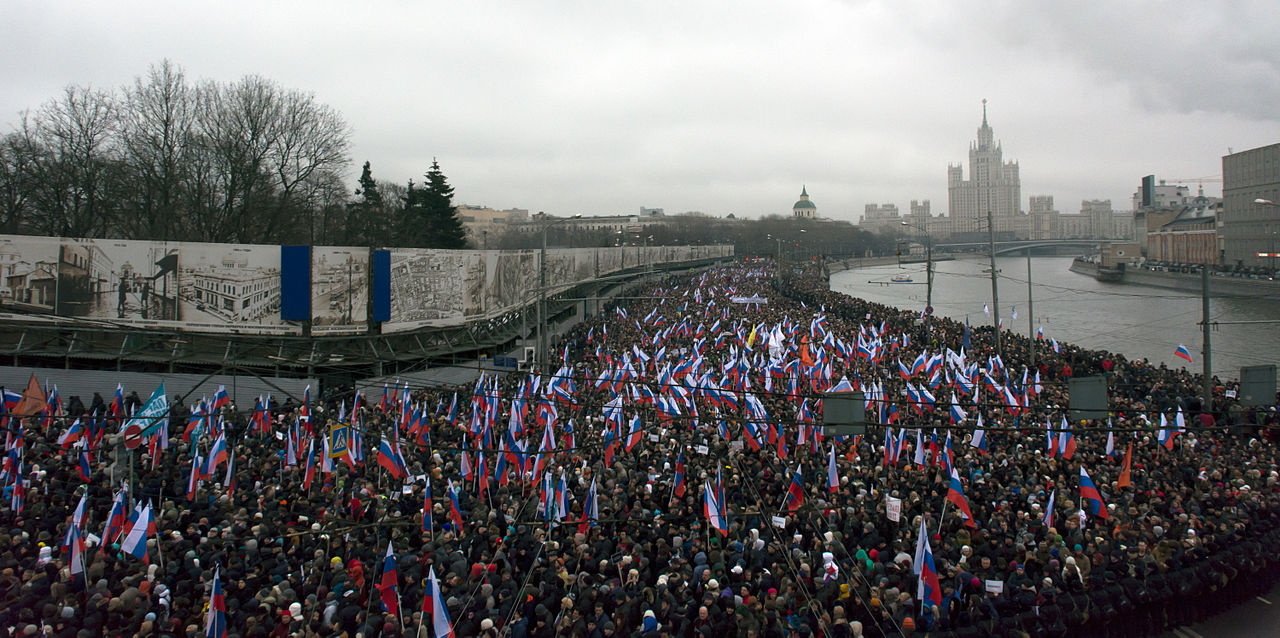
By: Michael Ingram
Russian expansionism is back without a bang. Since Feb. 27, the south Ukrainian Autonomous Republic of Crimea has been under de facto Russian control. In a remarkably subtle move (as far as invasions go), troops first appeared throughout the Crimean capital of Simferopol in unmarked green battle fatigues. They bore no official insignia, but the Russian presence was clear.
The soldiers secured the Crimean Parliament, hoisting the Russian flag in place of Ukraine’s. They blockaded both of the region’s international airports and surrounded Ukrainian military bases. Motorists pulled onto highway shoulders as Russian attack helicopters stalked the wintery skies above Crimean farmlands. In the wake of the 2014 Ukrainian Revolution, Russia has entered into a silent pledge to leverage instability in favor of the Motherland.
So far, Russia’s annexation of Crimea has proceeded peacefully. The strategic peninsula is a pro-Russian enclave inside Ukraine, and most Crimeans have welcomed the takeover with open arms. Ethnic Russians form the majority of the region (59 percent as of the 2001 Ukrainian census). The region echoes the pro-Russian sentiment present throughout most of eastern Ukraine. Aside from intermittent bursts of Kalashnikov assault rifle fire over the heads of unarmed Ukrainian soldiers, life in Crimea does not reflect its occupied status. Crimeans fear the unrest in the Ukrainian capital of Kiev, but today they go about their daily lives. Crimeans greeted Russian soldiers as peacekeepers for fending off the “radicals” who incited chaos in Kiev. They perceived the protestors as fascists and nationalists who toppled the pro-Russian administration of Victor Yanukovych. In fact, Yanukovych’s unserendipitous exit from Kiev first routed him through Crimea, then off into Russia’s warm embrace.
 Russia’s selection of Crimea as a staging point is natural. The seaside city of Sevastopol houses the only fully functional Russian ice-free naval base. Home of the Black Sea Fleet, the port is Russia’s gateway to power projection throughout the Mediterranean Sea. The naval base there serves as a garrison for 11,000 sailors and marines, plus the 6,000 reinforcements that arrived on the eve of the Crimean incursion. While the Black Sea Fleet is critical to a global naval presence for Russia, it also gives Russia a firmer grasp on its subjects and former territories in the Caucuses. Russia’s 2008 war in neighboring Georgia serves as the most prominent example of this strategy; during the war, Russian military forces launched amphibious assaults from Sevastopol against the Georgian coast. Before the fall of Yanukovych, Russia had locked in the lease of Sevastopol through 2042. Post regime-change though, the new pro-Western leadership in Kiev strongly considers amputating Russia’s access to Black Sea.
Russia’s selection of Crimea as a staging point is natural. The seaside city of Sevastopol houses the only fully functional Russian ice-free naval base. Home of the Black Sea Fleet, the port is Russia’s gateway to power projection throughout the Mediterranean Sea. The naval base there serves as a garrison for 11,000 sailors and marines, plus the 6,000 reinforcements that arrived on the eve of the Crimean incursion. While the Black Sea Fleet is critical to a global naval presence for Russia, it also gives Russia a firmer grasp on its subjects and former territories in the Caucuses. Russia’s 2008 war in neighboring Georgia serves as the most prominent example of this strategy; during the war, Russian military forces launched amphibious assaults from Sevastopol against the Georgian coast. Before the fall of Yanukovych, Russia had locked in the lease of Sevastopol through 2042. Post regime-change though, the new pro-Western leadership in Kiev strongly considers amputating Russia’s access to Black Sea.
Regardless of Kiev’s position, Russia survives in Crimea’s DNA. The peninsula was originally a federal subject of the Russian Soviet Socialist Republic inside the greater Soviet Union. In a gesture of goodwill towards the then Ukrainian Soviet Socialist Republic, Soviet Premier Nikita Khrushchev gifted Crimea to Ukraine. However in 1954, there was no horizon on the future of the Soviet Union. Collapse was never expected at the height of the Cold War, but upon dissolution, Russia found one of their most strategically valuable territories seceding away.
The 2014 Ukrainian Revolution’s success and severity caught Putin by surprise. As such, Russia’s military presence in Crimea is a show of strength against a more autonomous Ukraine and a show of solidarity with Russian-speaking Ukrainians. To that effect, the rise of Russian-speaking citizens against the new government in Kiev has brought about unforeseen opportunities for Putin. The central government in Kiev has done little to stop stoking the fire under the pro-Russian Eastern provinces. Along with threats to revoke Russia’s lease on Sevastopol, they passed a controversial Ukrainian language law. Where Russian had once been a national second language, the new law would make Ukrainian the sole language used in any official capacity. Ethnic Russian citizens not only see themselves as marginalized under the new leadership, but potential targets of violent retribution by Ukrainian nationalists.
Pro-Russian protestors in Ukraine’s east are now following in the footsteps of their Crimean comrades. On March 3, protestors stormed the regional government building of the Donetsk Oblast. They demanded a referendum over the territory’s sovereignty. The same response occurred earlier in Crimea, where a referendum on greater autonomy has been scheduled for March 30. Crimea is already a fairly autonomous entity within Ukraine, but the referendum could pave the way for secession from Ukraine and entry into the Russian Federation.
Russian military build-up within Crimea and along the eastern Ukrainian border may be the foundation for future official annexation. Under the pretense of protecting Ethnic Russians and Russian-speaking Ukrainians, Russia will continue to establish a military beachhead for backing popular requests for sovereignty. In a way, it is a genius ploy to subvert the control of the Ukrainian central government. In lieu of actually fighting a war against Ukraine, Russia can simply support pro-Russian protestors as they transform their provincial governments into independent areas outside the direct control of Kiev. If these intended referendums go forward and result in a diminishment of Kiev’s authority, another referendum can then be established to determine whether or not these provinces join the Russian Federation. The continued presence of Russia’s military would be justified to deter any Ukrainian attempts to block independence, and Russia could claim a vast portion of Ukraine’s east without firing a shot.
Ukrainian instability is an open door for Russia to reclaim its former glory. Ukraine’s independence from Russia during the death throes of the Soviet Union was the loss of an economic, political, and cultural crown jewel. Gone was the comfortable buffer zone between NATO and Russia. Gone was a sizeable portion of Russia’s former population and Russian territory on the European mainland. 23 years have passed in the interim of the Cold War and the present, but Russia finally has an opportunity to recoup its losses. Whether or not the protesters are directly backed by Russia does little to diminish the perception that Ukraine is segmenting.
Russia’s gambit does not come without consequences. The United States and European powers see the Kremlin’s scheme as an unquestionably illegal violation of Ukrainian sovereignty. Secretary of State John Kerry views the Crimean incursion as an anachronistic decision by the former superpower as he stated on Face the Nation: “You just don’t in the 21st century behave in 19th century fashion by invading another country on completely trumped up pre-text”. Options considered for undoing the damage center on economic sanctions for Russia, and Ukraine has creatively asked that FIFA consider disqualifying Russia’s squad from the 2016 World Cup. However, a military option is far from the forefront in Western states, Ukraine notwithstanding. Over a decade of war in Iraq and Afghanistan means public support for a ground war with Russia would be low. Diplomacy is the preferred avenue for de-escalation, but Russia seems to be in the driver’s seat.
The ramifications of the Crimean Crisis are unparalleled in our time. Not since the Cold War has war with Russia been a conceivable possibility. If Ukraine’s pro-Russian east does indeed complete their secession, Ukraine will not let half their country be stolen without violent reaction. Despite Ukraine’s understandable response, chances are Russia will crush any opposition. Russia’s newfound aggression has also been felt further north. Poland and the Baltic states fear troop buildups on their borders and a larger regional conflict. All this tension is increasingly bringing Russia and NATO to a head. A peaceful compromise may yet be achievable, but it is hard to envision Ukraine not getting the raw end of the deal. Russia’s return to expansionism may have started with an ominous quiet, but the further Russia extends their reach, the mounting war of words may turn conventional and perilous.

